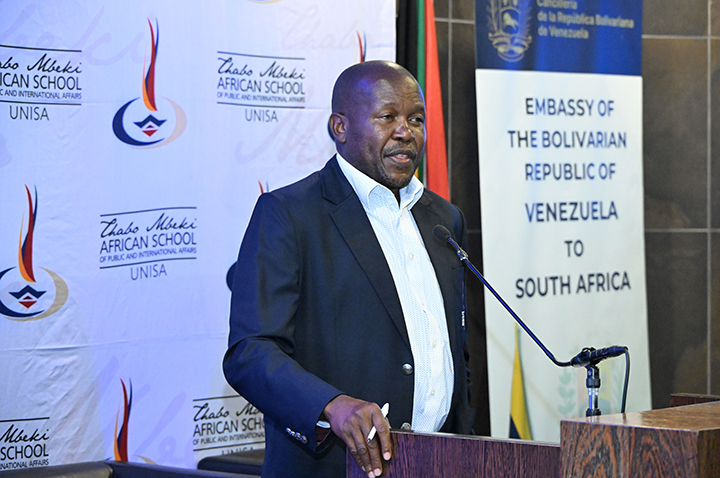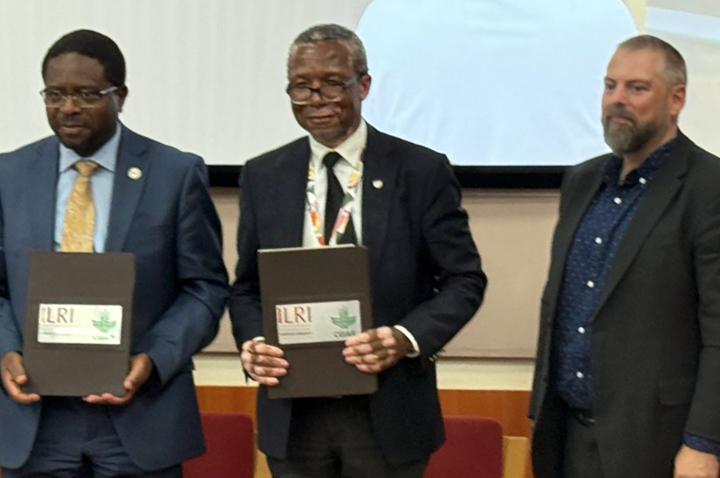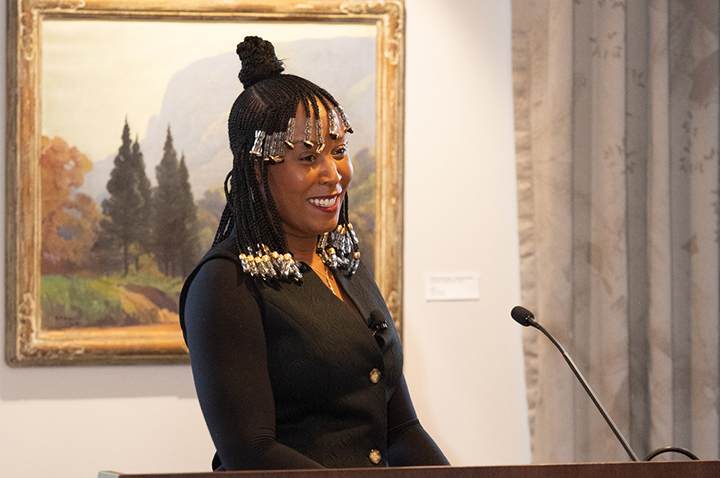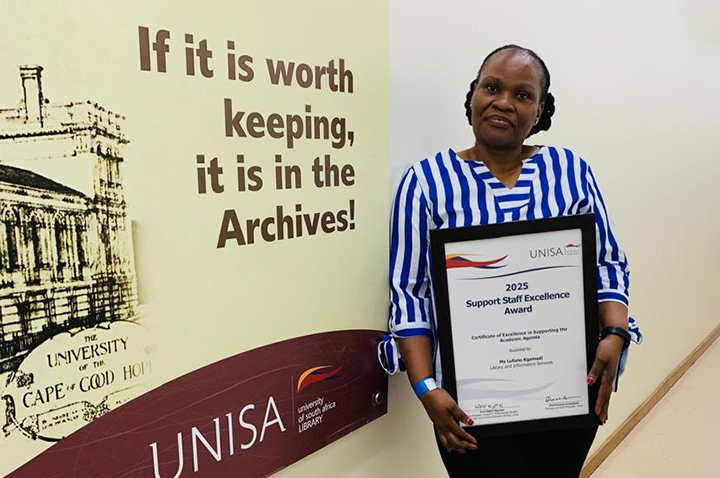
As pressure rises on government to free up more resources for higher education, a Unisa geography researcher is breaking new ground in exploring the potential of online education in Africa.
With the backing of a R2 million grant from the National Research Foundation (NRF) and a partnership with the Open University United Kingdom, Dr Ashley Gunter is exploring distance education, and particularly online learning, as a pathway out of poverty for millions of people.

With the backing of a R2 million grant from the National Research Foundation (NRF) and a partnership with the Open University United Kingdom, Unisa’s Dr Ashley Gunter is exploring distance education, and particularly online learning, as a pathway out of poverty for millions of people.
“Online learning is the future, and I envisage a time when everyone on the continent will have access to higher education through online learning,” says Gunter, Chair of the Geography Department at the College of Agriculture and Environmental Sciences.
For that to happen—and for as many students as possible to succeed online—many unanswered questions need to be examined. One of the most critical is: How do students behave online and how can we harness our understanding of that behaviour to enhance their prospects of success, particularly in the science, technology, engineering and mathematics (STEM) subjects?
Another key question is: Why do students in African countries such as Nigeria, which is a regional education hub in its own right, and Zimbabwe, which has its own, highly respected open university, choose to study through Unisa?
“These questions around African regional hubs and Africa as a centre of excellence exist but haven’t been answered, and are important in the broader context of Africa and decolonisation,” Gunter says.
In all, 1 000 African students based in Nigeria, Zimbabwe, South Africa, and Lesotho (chosen for its close connections with South Africa) will be invited to take part in the study as respondents.
The study is being conducted over 30 months, through to 2019, in partnership with the Open University UK, which has obtained £500 000 in funding for the project (around R8 million at today’s exchange rate). Taking into account the NRF’s investment, this brings the total project funding to about R10 million.
The research is being conducted in two parts. In the first phase, the Unisa-Open University UK research team will study and analyse the online behaviour of the participating students. “For example, we will be looking at how often they go online, what they download, whether they interact with other students, and whether they are very active on discussion forums or just pop in and out,” says Gunter.
Going deeper, the team will use data analytics to explore patterns, such as identifying academic content and concepts that students hover over for long periods (possibly indicating challenges being experienced with that material) or move through quickly (possibly indicating swift mastery).
“We will spend one year (2017) analysing students’ online behaviour, meaning that the number-crunching will be huge,” says Gunter. Hopefully, the data analytics will reveal insights into the type of online behaviour that spells success or failure for students.
Such insights will be tested and fleshed out in the second phase of the project. This will start with an online survey among the same 1 000 students from the first phase, followed by contact interviews in the countries where the students are based (Lesotho, Nigeria, South Africa and Zimbabwe).
“Some of the questions we will be asking are what challenges students face, the benefits of studying at Unisa, whether the subject knowledge is relevant to them, and whether knowledge should be globalised or localised,” he says.
Once all this feedback has been analysed and interpreted, the team will spend 2018 introducing interventions to assist students who might be running into difficulties. Possible examples of solutions are friendly automated emails or pop-up messages to students who have been offline for extended periods, or alerting their lecturers to the possibility that a student is encountering challenges.
“Ultimately, our aim is to use this study to produce solutions that really help students and enable them to get the best education possible. We feel online is a great platform for giving people access to higher education, and the more we know about their online behaviour, the more we can do to help them succeed.”
 *By Clairwyn van der Merwe
*By Clairwyn van der Merwe
Publish date: 2016-12-15 00:00:00.0
 Unisa seminar examines breach of the international legal framework
Unisa seminar examines breach of the international legal framework
 Unisa and ILRI sign landmark MoU to advance Africa's genomic leadership
Unisa and ILRI sign landmark MoU to advance Africa's genomic leadership
 AMT to strengthen global black hole imaging and advance African astrophysics
AMT to strengthen global black hole imaging and advance African astrophysics
 Unisan awarded Presidential Fellowship at American university
Unisan awarded Presidential Fellowship at American university
 Scholar-practitioner excellence recognised at Unisa
Scholar-practitioner excellence recognised at Unisa